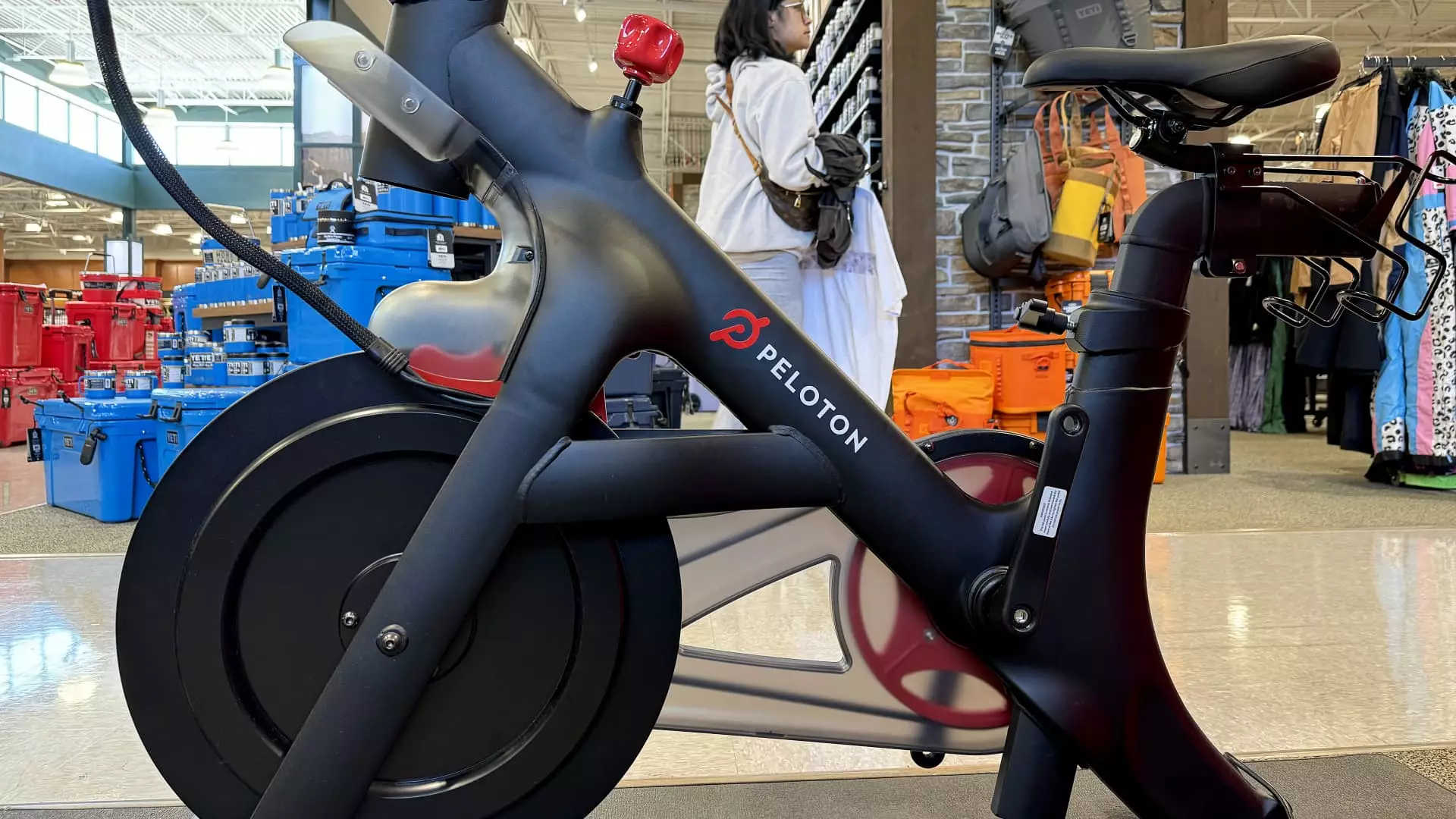Peloton has felt the pressures of a competitive fitness landscape over the last few years. The pandemic brought unprecedented growth to home workout solutions, yet as interest waned, so did the user engagement and subscription rates. Amidst these challenges, Peloton unveiled its latest initiative: Repowered, a marketplace for reselling used equipment and gear. This innovative platform aims not just to declutter your home; it also seeks to revitalize the company’s fortunes. With an intriguing mix of opportunity and risk, this venture sheds light on the larger economic implications of consumer behavior and corporate adaptability.
Addressing a Growing Problem: The Dusty Equipment Dilemma
The movement toward digital fitness has left many Peloton bikes and treadmills abandoned, used as glorified clothing racks rather than the instruments of health they were designed to be. As a result, a burgeoning secondary market has arisen, characterized by enthusiastic bargain hunters who are more than wary of purchasing new. Recognizing this, Peloton’s Repowered platform directly addresses the issue of unsold equipment collecting dust in living rooms. The marketplace will allow users to recycle their old gear for the next consumer, creating a cyclic economy that benefits both the sellers and prospective buyers.
However, one cannot help but question why Peloton waited until this point to enter the resale segment. The company has spent considerable resources on customer engagement yet largely overlooked the assets lying unused in its customer base. The timing of Repowered feels, at best, reactive rather than anticipatory. Nevertheless, it could be a brilliant pivot if executed effectively, elevating the brand into a new era while capitalizing on the existing, albeit underused, product inventory.
AI-Powered Price Tools: A Double-Edged Sword?
Peloton claims that sellers have the final say on pricing, yet the integration of a generative AI tool introduces a level of complexity into the selling process that raises eyebrows. While AI-driven pricing offers helpful data, is there a risk that sellers might rely too heavily on algorithmically-driven decisions, potentially undervaluing their equipment?
The merit of AI in facilitating sales shouldn’t be underestimated, as it can analyze vast datasets and derive competitive pricing benchmarks. However, a critical perspective suggests that it also undermines the organic intuition of seasoned sellers who understand their market niche. Reliance on technology to make personal decisions could dilute the uniqueness of customer experiences, transforming what should be a personalized transaction into a formulaic exercise.
Financial Incentives: Peloton’s Clever Spin
The financial structure Peloton has implemented for Repowered is noteworthy—offering sellers 70% of the sales price while providing buyers with discounted activation fees positions the initiative favorably in a competitive market. For many, Peloton’s move appears to be an astute strategy to bolster its subscription model while tapping into new revenue streams. By capturing a slice of the booming secondhand market, Peloton not only mitigates losses from unengaged subscribers, but also incentivizes users to stay within the ecosystem.
This business strategy, while necessary, highlights a troubling aspect of Peloton’s operational ethos: the need to pivot in response to dwindling subscriptions rather than fostering long-term engagement with existing customers. In this sense, Repowered feels less like a proactive initiative and more like a last-ditch effort to salvage an increasingly precarious business model.
Competing Interests: A Market Full of Choices
In an age of direct purchasing through platforms like Facebook Marketplace, Repowered faces stiff competition. Entrepreneurs and startups like Trade My Stuff are already laying the groundwork for a vibrant resale ecosystem centered around used fitness equipment. While Peloton’s entry into this domain could enhance overall market consumer confidence, questions arise regarding whether their involvement will stifle the burgeoning entrepreneurial spirit exemplified by smaller competitors.
Peloton asserts that Repowered will provide a safer, more reliable avenue for equipment exchanges, but could that promise inadvertently displace smaller resellers who, until now, have offered alternatives without the corporate influence? Competition is healthy, but when larger corporations step onto the playing field, they risk overshadowing smaller entities, potentially leading to monopolistic behaviors that could stifle innovation in the future.
In the already competitive landscape of fitness equipment, Peloton’s Repowered initiative challenges existing paradigms and compels observers to reconsider the value of secondhand goods, urging a cultural shift towards sustainability and accessibility in home fitness. Whether this effort will prove transformative for Peloton—and the fitness industry at large—remains to be seen. Nevertheless, it certainly raises intriguing questions about corporate identity and consumer empowerment in an ever-evolving economy.

